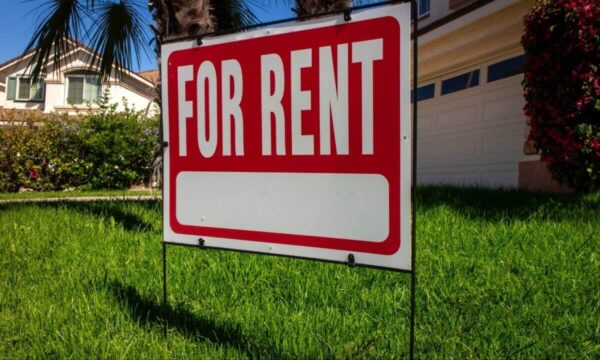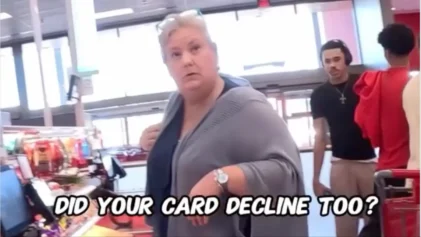Imagine returning from out of town to discover upon checking on one of your supposedly vacant rental properties that you can’t get inside – because squatters have illegally taken it over.
Squatters — unauthorized residents of uninhabited homes who don’t pay rent to the rightful owner — have caused major headaches for homeowners and landlords in the United States, and the problem is getting out of control in Georgia, lawmakers say.
What makes the problem worse is that in most states, including Georgia, these illegal inhabitants can take advantage of squatters’ rights or adverse possession, which can protect them and allow them to remain in the stolen property.

The Peach State “has been identified as the No. 1 place for squatting,” according to Georgia Rep. Devan Seabaugh, a Republican legislator who recently introduced House Bill 1017 to help combat the issue of squatting in the state’s vacant homes.
The bill, also known as the Georgia Squatter Reform Act, is making its way through the state legislature. It aims to take away squatters’ rights and label the act of squatting a criminal trespass offense in the state, Seabaugh said on Facebook.
The National Rental Home Council estimates around 1,200 metro Atlanta homes have recently been invaded by squatters, more than any other metro area in the US that the council keeps track of, Bloomberg reported.
“We have to stop it,” Seabaugh said. These squatters are criminals. They are harming homeowners, legal tenants, and realtors and making our neighborhoods unsafe.”
The bill’s passing would mean squatters would be immediately removed from properties, jailed and fined, according to Seabaugh.
Undercover Report Reveals Home Listing Service for Squatters
How are squatters gaining access to these homes? One way, as a WSB-TV investigation recently unveiled in Atlanta, is through ads online.
The news outlet sent an undercover producer to inquire about renting through a listing for a squatter home through a now-removed Instagram account called “1timePaymentHomes,” which, according to the report, was intentionally listing homes for the sole purpose of squatting.
One of the Instagram posts read, according to WSB-TV, “The company’s owners will come out, so will the police. The police will tell you there’s nothing they can do about it – squatters rights.”
The producer arranged a meeting with someone from the account, sent a $500 payment through Apple Pay, and was told to pick any house posted on Rently, a real estate website, according to the investigative report.
During a brief meeting, the producer was told by a representative that they would get the keys and be back shortly — but the person took off running at the sight of a WSB-TV news cameraperson and reporter approaching.
Instagram told WSB-TV that they’ve since deactivated the account.
Homeowners Say Dealing with Squatters Is ‘Very Frustrating’
Dr. Lee Davenport, an Atlanta-based strategic real estate advisor at Real Estate Bees, told Atlanta Black Star she once had a squatter situation during the Great Recession around 2008.
The former real estate agent was in her 20s and showing a property when she and the prospective resident walked in on a squatter.
“There was someone in the home who was apparently a drug addict because there was literally a pipe on the stove, there was a gun on the counter,” Davenport said.
She recalled that they tried to leave the property as quietly as possible after glimpsing a pair of legs on the ground in the other room.
“When we came back – and I did come back because I was going to file a police report – they had it cleared out, so I was probably one of the luckier people in that it didn’t take months to get them out,” Davenport said.
Atlanta-area real estate agent Kesha Chedeaux told Fox News that squatters had “totally destroyed” a property of hers in a recent incident.
“One has went to jail. They sold the appliances from the property and received money for them selling appliances. [There’s] feces everywhere, [they’re] sleeping in the beds because these properties are staged on the market,” Chedeaux told Fox News last month.
Another victim from DeKalb County told WSB-TV that he became a squatting victim last month while he was away caring for his sick wife.
“Basically, these people came in … broke into my house and had a U-Haul move all their stuff in,” Paul Callins told WSB-TV about the house he inherited from his late father three years ago. “It’s frustrating. It’s very frustrating. I can’t even sleep.”
After he invested thousands of dollars into renovating the property, he posted an online ad in hopes of renting it out to a government-subsidized tenant, according to WSB-TV.
Callins told the outlet he thinks the two men and woman living there now must’ve seen the online ad and address.
“I guess they have done this before, because when I called the police, they said since they have a fake lease, that they can’t do anything, that it’s a civil matter,” he said to WSB-TV.
What Can Homeowners Do About Squatters?
Davenport says to get rid of squatters in Georgia, a homeowner has to go through the full eviction process.
“That means they would have to serve notice, file it with the court (and) once the judge says yea or nay, then a bailiff would have to come, so it would have to follow that legal proceeding,” she said.
The point of squatters’ rights, according to Davenport, is so a homeowner doesn’t resort to violence or abuse to remove an inhabitant from their property.
“People that are malicious squatters know the law’s on their side, they know that a court case [and] eviction proceedings could take up to a year or longer,” she said.
As of now, in Georgia, the only legal way for a homeowner to get rid of a squatter is through eviction proceedings, but the passing of the Georgia Squatter Reform Act would change that.
“With this new reform, it does mean something to know that if you don’t belong here because [the homeowner has] never met you, you didn’t sign anything, and you’re not paying to be here, then you shouldn’t be,” Davenport said.


